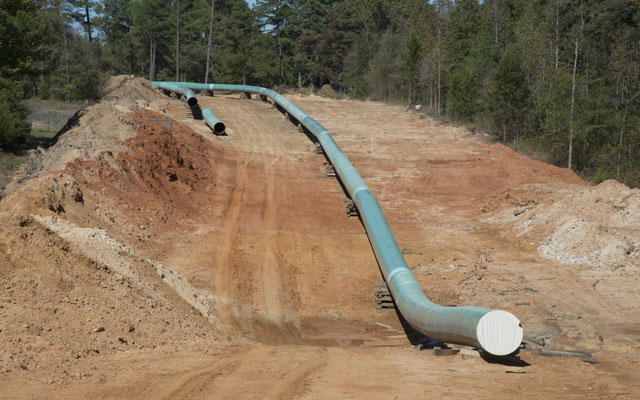In June 2008, presidential candidate Barack Obama said, “If we continue to let our trade policy be dictated by special interests, then American workers will continue to be undermined, and public support for robust trade will continue to erode.” That’s exactly what’s happening with respect to energy trade. Special interests want to block the construction of the Keystone XL pipeline and block opportunities to export natural gas.
Representative Lee Terry (R–NE) has introduced the Northern Route Approval Act, which would approve the Keystone XL pipeline by deeming the State Department’s first environmental review as satisfying all requirements of the National Environmental Policy Act. House Majority Leader Eric Cantor (R–VA) announced that the House will vote on the bill this month.
The act is important for several other reasons. Even if President Obama grants Keystone XL the presidential permit, environmental activists adamantly opposed to the project will almost certainly bring legal challenges to delay or prevent the pipeline’s construction. Terry’s bipartisan bill, which has 36 co-sponsors, would limit these challenges by creating a 60-day deadline for filing a claim.
In addition, the act would ensure that the environmental review satisfies all requirements of the Endangered Species Act, which has been an important tool for environmental activists unjustifiably stopping economic activity.
In addition to dragging its feet on Keystone, the Administration is also needlessly delaying energy export opportunities.
With the glut of natural gas and low gas prices in the United States, energy producers are seeking to liquefy and ship domestic natural gas to foreign markets. Special interest groups such as chemical companies are trying to keep natural gas in the states.
Exporting natural gas would provide a huge boon to the U.S. economy since it would expand market opportunities for American companies, and new market access would spur more domestic development.
Two former Democratic Senators—Byron Dorgan (ND) and Bennett Johnston (LA)—testified today before the House Energy and Commerce Subcommittee on Energy and Power about the broad economic benefits of exporting natural gas, emphasizing that the U.S. should avoid restrictions on energy exports. (These thoughts are elaborated on in a Heritage Foundation paper, “U.S. Natural Gas Exports: Lift Restrictions and Empower the States.”)
But the Department of Energy (DOE) has delayed decisions on export licenses. Not only does an export applicant have to obtain approval from the Federal Energy Regulatory Commission, but the DOE must determine if the project is in the public’s interest if the importing country does not have a free trade agreement with the U.S.
There is no question that the economic benefits from exporting natural gas are overwhelmingly positive. A DOE-commissioned study reinforced that by concluding, “Across the scenarios, U.S. economic welfare consistently increases as the volume of natural gas exports increased. This includes scenarios in which there are unlimited exports.”
So why is the DOE involved in the permit authorization process at all? U.S. producers should be allowed to export natural gas to any country they see fit, subject to the same restrictions that govern other trade. This would direct natural gas to its highest valued use. Congress should lift restrictions on natural gas recipient countries and prohibit any federal agency from determining natural gas exports based on public interest.
President Obama of 2013 should listen to 2008 candidate Obama. We shouldn’t have our trade policy dictated by special interests. Allowing access to energy imports and exports would make Americans far better off.
